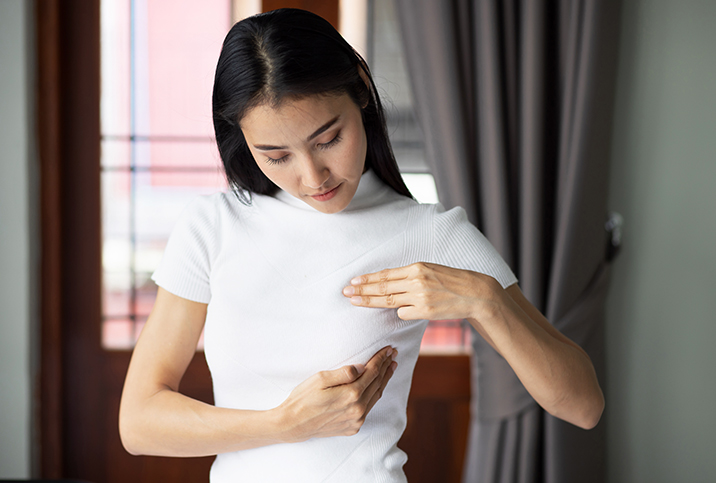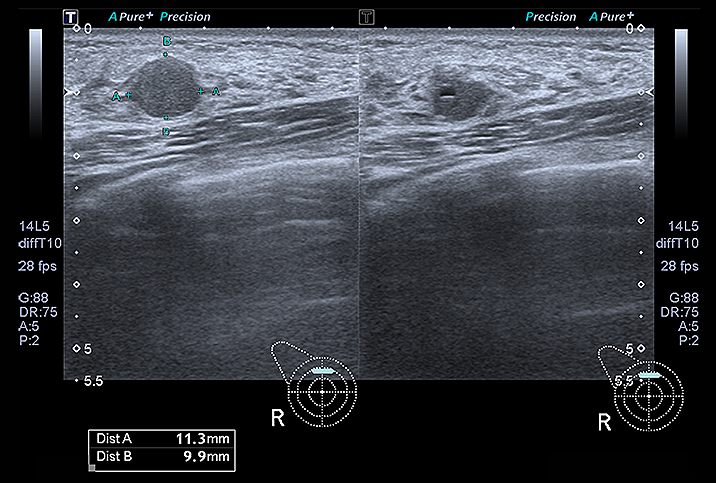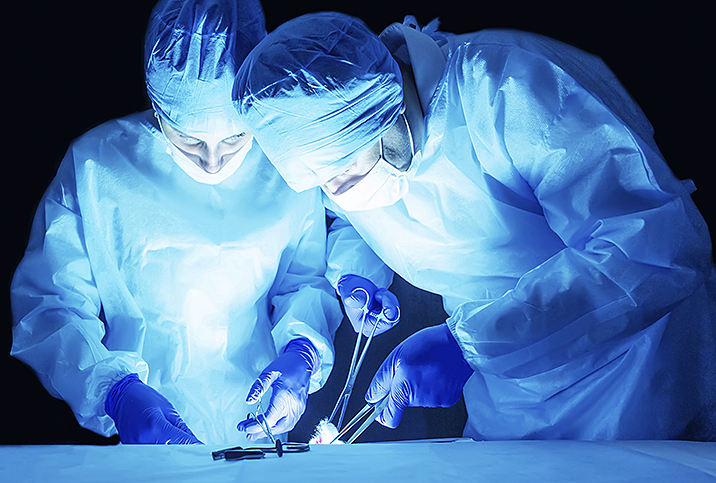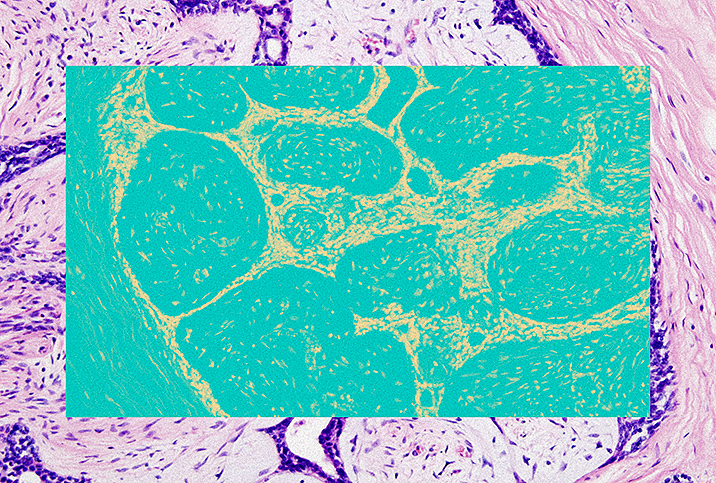Can I Cure My Fibroadenoma Naturally?
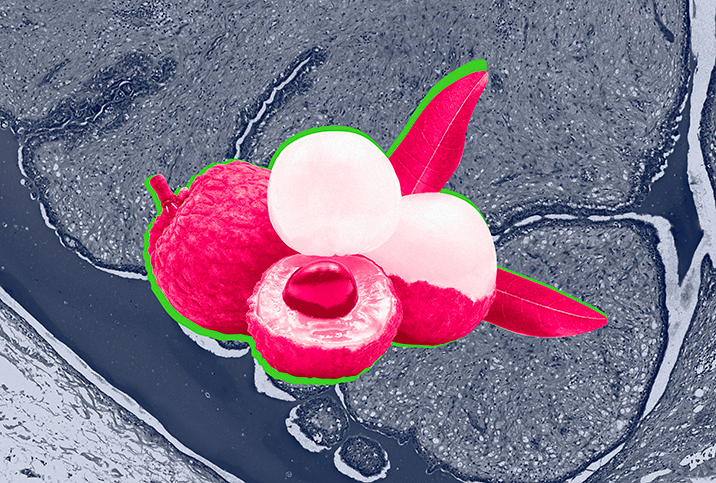
For the most part, lumps in the breast are benign growths referred to medically as fibroadenomas. These breast lumps tend to remedy on their own, though more stubborn growths may require surgical excision to remove them—and this form of removal has long-term repercussions on the shape of your breasts.
Many misconceptions about alternative treatment methods surround fibroadenomas. For instance, can a fibroadenoma be removed naturally?
Can diet be a cure?
As a way to reduce your risk of developing fibroadenomas, yes, natural methods can help. A 2010 study published in the Journal of Nutrition indicated a diet predominantly made up of fruits and vegetables may be a key factor in reducing fibroadenomas.
Women who ate mostly fruits and vegetables, and considerably less meat and animal products, were found to have less risk of developing fibroadenomas, and those who had the condition at the beginning of the study were noted to have had their lumps shrink by the end of it. However, it was also noted that a vegetable-dominant diet did not remove lumps completely.
Additionally, people who ate fruit from the Sapindaceae botanical family (lychees and longans), as well as soy products such as tofu and edamame, had a significantly lower risk of developing both fibroadenomas and malignant growths.
What about herbal remedies?
Many people may balk at the possibility of going under the knife to remove a fibroadenoma and instead consider homeopathic treatments and therapies. The list of herbal decoctions recommended for naturally shrinking benign lumps in the breast continues to grow longer, and even includes oils pressed from frankincense and the bitter gourd.
Evening primrose oil
Among the options is evening primrose oil, which has been considered a cure-all remedy of sorts for women's conditions, including the symptoms of perimenopause and menopause. However, a 2000 study stated that evening primrose oil does not significantly affect the natural history of breast fibroadenomas.
Castor oil
Castor oil, commonly used as a purgative, has been used as a remedy for fibroadenoma since ancient times. Rich in 12-hydroxy-9-octadecenoic acid (ricinoleic acid) and containing phenolic compounds and triglycerides, it penetrates the skin and enhances the transdermal penetration of other chemicals.
Pasque flower
Another home remedy is the pasque flower. A 2018 homeopathic study touts the merits of the small pasque flower (Pulsatilla pratensis) in treating adenoma in an 18-year-old girl, resulting in the disappearance of the adenoma over a 15-month period. In the study, an extract of pasque flower was used as the single curative agent in the patient's treatment.
Are home remedies effective?
With the explosion of the DIY culture online, a growing number of women are leaning toward natural, home remedies. Despite these treatment methods gaining traction, numerous medical experts advise anyone with fibroadenomas or even breast cysts to discuss alternative medicine with their healthcare providers.
Science does not appear to sway in favor of home remedies. For example, there is no scientific evidence denoting curing of lesions with castor oil or any other home remedy modality, according to Kecia Gaither, M.D., board-certified in OB-GYN and maternal-fetal medicine and director of perinatal services/maternal-fetal medicine at NYC Health + Hospitals/Lincoln in the Bronx in New York City.
However promising castor oil may sound, there is no evidence that castor oil cures fibroadenoma, agreed Beth DuPree, M.D., a breast surgeon and integrative medicine specialist in Arizona. No clinical study proves castor oil's effectiveness in treating this condition. Moreover, there is no evidence-based proof of the efficacy of any other home remedies in removing fibroadenoma.
Women must be careful when deciding whether to use these home remedies. More research is still required to confirm the validity of their use in the nonsurgical removal of fibroadenomas. In addition, many herbal preparations and supplements may cause more harm than good to the health of those who use them, especially if they're taking other medications.
Supportive lifestyle changes
Fibroadenomas shrink over time and do not usually need surgical intervention. Indeed, surgery or its alternative, cryoablation, are recommended only if the lump causes serious discomfort to a patient and keeps them from living a normal life. Even then, doctors advise patients against the procedure as it may adversely affect the shape and appearance of the breasts.
Important lifestyle changes can go a long way. Decreasing alcohol, fatty foods and red meat, and increasing fruit and vegetable intake have causally been associated with decreasing the risk of fibroadenoma development. Mammography and/or breast sonogram assist with diagnosis and biopsy, Gaither said.
Living a healthy lifestyle, avoiding alcohol and caffeine, and wearing a properly supportive bra may help relieve the discomfort from fibroadenomas. More importantly, always consult your physician regarding individualized treatment options.
Editor's note: These statements have not been evaluated by the Food and Drug Administration. Our medical experts advise that you consult with your primary healthcare provider before you begin using a supplement. This information is not intended to diagnose, treat, cure or prevent disease.












